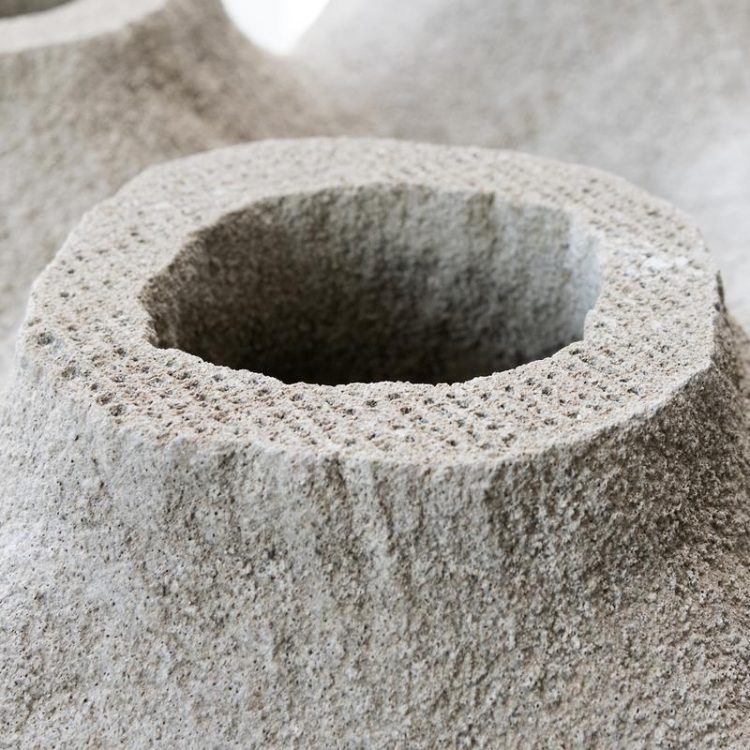Hannover Messe 2019: BAM conducts research on 3D-printed concrete components

BAM is conducting research on new materials and processes for 3D printing in the construction industry. Source: BAM
Traditionally, concrete component manufacturing is arduous and design possibilities are limited by the formwork. Should infrastructural elements require replacement due to damage, this repair work is often costly.
Additive manufacturing opens up new possibilities to manufacture customised products or even small batches of concrete components in an efficient manner. This is where BAM’s research steps in.
Together with Clausthal University of Technology, BAM is working on laser-based additive manufacturing of alkali-activated concrete. Not only does this have a higher chemical resistance, but in combination with 3D printing technology, it could also provide unique possibilities for industrial applications.
“Additive manufacturing is already being utilised for plastics and metals with great success,” explains Professor Jens Günster, project leader and head of the Ceramic Processing and Biomaterials division at BAM. “We want to further develop the manufacturing process so that it can also be safely applied in the construction materials sector.”
BAM is also involved in the AMITIE EU project (Additive Manufacturing Initiative for Transnational Innovation in Europe). Within the scope of AMITIE, BAM scientists are cooperating with Desamanera, an Italian start-up. Together, they want to optimise 3D printing for very large, complex concrete and mortar components.
You can find more information on all of BAM’s exhibitions at the Hannover Messe at www.bam.de/hannovermesse-en.
Contact:
Venio Quinque, M.A., LL.M./LL.B.
Head of Section Corporate Communications
Bundesanstalt für Materialforschung und –prüfung (BAM)
Unter den Eichen 87
12205 Berlin
GERMANY
T: + 49 30 8104-1002
F: + 49 30 8104-71002
presse@bam.de
About BAM
BAM promotes safety in technology and chemistry.
As a departmental research institute of the German Federal Ministry for Economic Affairs and Energy, BAM performs research, testing and offers advisory support to protect people, the environment and material goods. Its activity in the fields of materials science, materials engineering and chemistry is focussed on the technical safety of products and processes.
BAM’s research is directed towards substances, materials, building elements, components and facilities as well as natural and technical systems important for the national economy and relevant to society. It also tests and assesses their safe handling and operation. BAM develops and validates analysis procedures and assessment methods, models and necessary standards and provides science-based services for the German industry in a European and international framework.
Safety creates markets.
BAM sets and represents high standards for safety in technology and chemistry for Germany and its global markets to further develop the successful German quality culture “Made in Germany“.
http://www.rise-amitie.eu/
http://www.desamanera.com/en
https://www.bam.de/hannovermesse-en
Media Contact
All latest news from the category: Trade Fair News
Newest articles

First-of-its-kind study uses remote sensing to monitor plastic debris in rivers and lakes
Remote sensing creates a cost-effective solution to monitoring plastic pollution. A first-of-its-kind study from researchers at the University of Minnesota Twin Cities shows how remote sensing can help monitor and…

Laser-based artificial neuron mimics nerve cell functions at lightning speed
With a processing speed a billion times faster than nature, chip-based laser neuron could help advance AI tasks such as pattern recognition and sequence prediction. Researchers have developed a laser-based…

Optimising the processing of plastic waste
Just one look in the yellow bin reveals a colourful jumble of different types of plastic. However, the purer and more uniform plastic waste is, the easier it is to…



